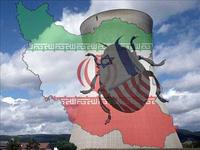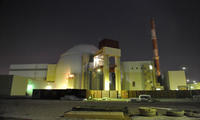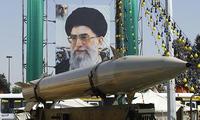-
WikiLeaks: Japan brushes aside U.S. fears of nuke terrorism
Diplomatic cables obtained by WikiLeaks reveal that U.S. officials were concerned about terrorist attacks at Japan’s nuclear facilities and the government’s seemingly lax security measures; one cable dated 26 February 2007, detailed a meeting where Japanese officials brushed aside U.S. concerns for physical security at one of the country’s nuclear facilities; additional cables sent from the U.S. Embassy in Tokyo to Washington D.C. reported that anti-terrorism drills held at nuclear facilities were unrealistic and overly “scripted”
-
-
U.S. can curb carbon emissions while boosting domestic oil production
A report from the Massachusetts Institute of Technology and the University of Texas at Austin urges the United States to accelerate efforts to pursue carbon capture and storage (CCS) in combination with enhanced oil recovery (EOR), a practice that could increase domestic oil production while significantly curbing emissions of carbon dioxide (CO2)
-
-
Biometric meetings to tackle security issues
A meeting in Washington, D.C. on 5-6 May, organized by the Centre for Policy on Emerging Technologies , this event is part of the RISE project (Rising pan-European and International Awareness on Biometrics and Security Ethics), a task 2 initiative sponsored by the Directorate European Research Area of the European Commission that aims to contribute to the creation of a common strategic vision on responsible biometric innovation among the main international players, will address the issue of biometric security in a global perspective
-
-
Iran admits Stuxnet's damage
A senior Iranian official admitted that the Stuxnet malware, which infected tens of thousands of computers and servers used in Iran’s nuclear weapons complex inflicted serious damage on Iran’s nuclear program, including large-scale accidents and loss of life
-
-
Nuclear terrorism is a preventable catastrophe
Graham Allison, a nuclear proliferation expert, warns of the seriousness of the threat of nuclear terrorism and the ease with which rogue states or terrorists groups can obtain weapons or fissile material and the knowledge essential to developing production capability; “The number of rogue states and terrorist groups seeking to acquire nuclear weapons is increasing. There are a number of states willing to sell it to anyone, and a larger number of sites where enriched weapons grade plutonium and uranium can be found in conditions where they might be vulnerable to theft due to lack of security,” he says
-
-
U.S. and Israel were behind Stuxnet claims expert

Stuxnet first came to light in July 2010. Nearly 60 percent of reported infections were inside Iran; the worm targets industrial control systems, known as programmable logic controllers (PLCs), made by Siemens; Ralph Langner told a conference in California that the malicious software was designed to cripple systems that could help build an Iranian bomb; in a recent report on Stuxnet, the security firm Symantec said that it would have taken a team of between five and ten developers, six months to create the worm; Langner said that the project would have required “inside information”, so detailed that “they probably knew the shoe size of the operator.”
-
-
Rebels reject talks unless Gaddafi goes

Rebels in eastern Libya have said they will not negotiate unless Col. Muammar Gaddafi quits and goes into exile; the National Libyan Council in the city of Benghazi also called again for foreign intervention to stop government air raids against the rebels; the International Criminal Court meanwhile said it would investigate Col. Gaddafi and some of his sons for crimes against humanity; President Barack Obama repeated his demand that the embattled ruler resign
-
-
In a setback, Iran unloads nuclear fuel from Busheher reactor

Iran announced Saturday it was unloading nuclear fuel from the Bushehr reactor, signaling more problems for the Russian-built plant after decades of delay; a source close to the project said the fuel was being unloaded on the suspicion that metal particles from nearly 30-year old equipment used in the construction of reactor core had contaminated the fuel; a senior Iranian official said earlier this month that suggestions should be investigated that the Stuxnet computer worm, believed to have been an attempt by Iran’s enemies to sabotage the nuclear program, had caused harm to the 1,000 megawatt Bushehr reactor
-
-
No, a Boy Scout cannot build a backyard nuclear reactor
Dirty bombs are easy to build and only require strapping explosives to radioactive material; in counter-terrorism circles there is a myth that in 1995 a Boy Scout was able to assemble enough radioactive materials to build a nuclear reactor in his backyard in Michigan by gathering all of his materials from common household items; he dismantled lanterns to obtain Thorium, smoke detectors for Americium, and old clock dials for Radium; analysts say that it would take material from roughly two million smoke detectors to build a dirty bomb that would cause any damage
-
-
The past as prologue: The Galant affair
On Monday, General Benny Ganz replaced General Gabi Ashkenazi as the IDF chief of staff; in the four months leading to Ganz’s appointment Israel witnessed a bitter fight over the government’s preferred candidate, General Yoav Galant; pragmatists in the higher echelons of Israel national security establishment resolved to do all they can to prevent Galant, a hawk’s hawk, from becoming chief of staff; the pragmatists’ main worry: the moderate Ashkenazi served as a break on the government’s more hawkish tendencies, and they were afraid that Galant would only reinforce these tendencies, leading to an unnecessary attack on Iran; the pragmatists succeeded, and Galant’s nomination was killed, but it now appears that the more moderate elements in Israel’s defense establishment took extreme measures — including forging documents — to achieve their goal
-
-
Japan and U.S. agree on nuclear counterterrorism road map
Japan and the United States are preparing a “road map” for cooperative efforts to prevent atomic site workers from stealing potential ingredients for an act of nuclear terrorism; the plan would also address the development of “security-by-design concepts” for facilities such as nuclear energy stations and atomic fuel processing sites
-
-
DHS border security searches of electronics questioned
Debate continues over DHS’s search and confiscation of materials at international U.S. borders; the latest case to make the headlines is that of David House, 23, an MIT researcher whose laptop, flash drives, and cameras were confiscated at the U.S.-Mexico border by DHS on his way back into the United States after a vacation in Mexico; House writes in a blog post that he is one of few individuals who are able to visit Manning in his detention facility in Quantico, Virginia
-
-
Stuxnet may turn Bushehr into a new Chernobyl
The destructive Stuxnet virus infected some 45,000 industrial control computers and servers in Iran; it destroyed more than 20 percent of Iran’s centrifuges, and, on 16 November, forced Iran to shut down uranium enrichment operations; it also infected the control system of the Bushehr reactor; Stuxnet is a sophisticated virus: while doing its destructive work, it makes sure that control computers continue to display “normal” operational information; one Russian expert described how engineers at Bushehr “saw on their screens that the systems were functioning normally, when in fact they were running out of control”; a new intelligence report says that with control systems disabled by the virus, an accident in the reactor is likely — an accident which would have the force of a “small nuclear bomb”
-
-
In Illinois, you could go to prison for using your Blackberry
Illinois is one of twelve states with “two-party consent” eavesdropping laws on the books; audio recording a civilian in Illinois is a felony with up to three years in prison the first time you do it and up to five years if you do it again; the penalties are much stiffer, though, if you record certain people: audio-recording a law-enforcement officer, state’s attorney, assistant state’s attorney, attorney general, assistant attorney general, or judge in the performance of his or her duties is a Class 1 felony, punishable by up to fifteen years in prison
-
-
Weekend nuke talks with Iran run aground

A weekend meeting in Istanbul between Iran and six world powers about the future of Iran’s nuclear weapons program ended in an impasse; Iran insisted that any talks should be preceded by the lifting of the UN sanctions on Iran — but the United States, Russia, China, Britain, France, and Germany were in lock step in their opposition to Iran’s proposed conditions; the group’s unanimity could enhance prospects for a broad international agreement on future sanctions or other punitive measures to force concessions from Iran in the future; the six powers offered Iran a revamped version of last year’s Tehran Research Reactor proposal, in which France and Russia agreed to provide Iran with much-needed fuel rods for a medical research reactor if Iran would part with a large chunk of its stockpile of enriched uranium; such a deal would have left Iran with less than the minimum amount of nuclear fuel needed to make a single atomic bomb
-
- All
- Regional
- Water
- Biometrics
- Borders/Immig
- Business
- Cybersecurity
- Detection
- Disasters
- Government
- Infrastructure
- International
- Public health
- Public Safety
- Communication interoperabillity
- Emergency services
- Emergency medical services
- Fire
- First response
- IEDs
- Law Enforcement
- Law Enforcement Technology
- Military technology
- Nonlethal weapons
- Nuclear weapons
- Personal protection equipment
- Police
- Notification /alert systems
- Situational awareness
- Weapons systems
- Sci-Tech
- Sector Reports
- Surveillance
- Transportation
Advertising & Marketing: advertise@newswirepubs.com
Editorial: editor@newswirepubs.com
General: info@newswirepubs.com
2010-2011 © News Wire Publications, LLC News Wire Publications, LLC
220 Old Country Road | Suite 200 | Mineola | New York | 11501
Permissions and Policies
Editorial: editor@newswirepubs.com
General: info@newswirepubs.com
2010-2011 © News Wire Publications, LLC News Wire Publications, LLC
220 Old Country Road | Suite 200 | Mineola | New York | 11501
Permissions and Policies
